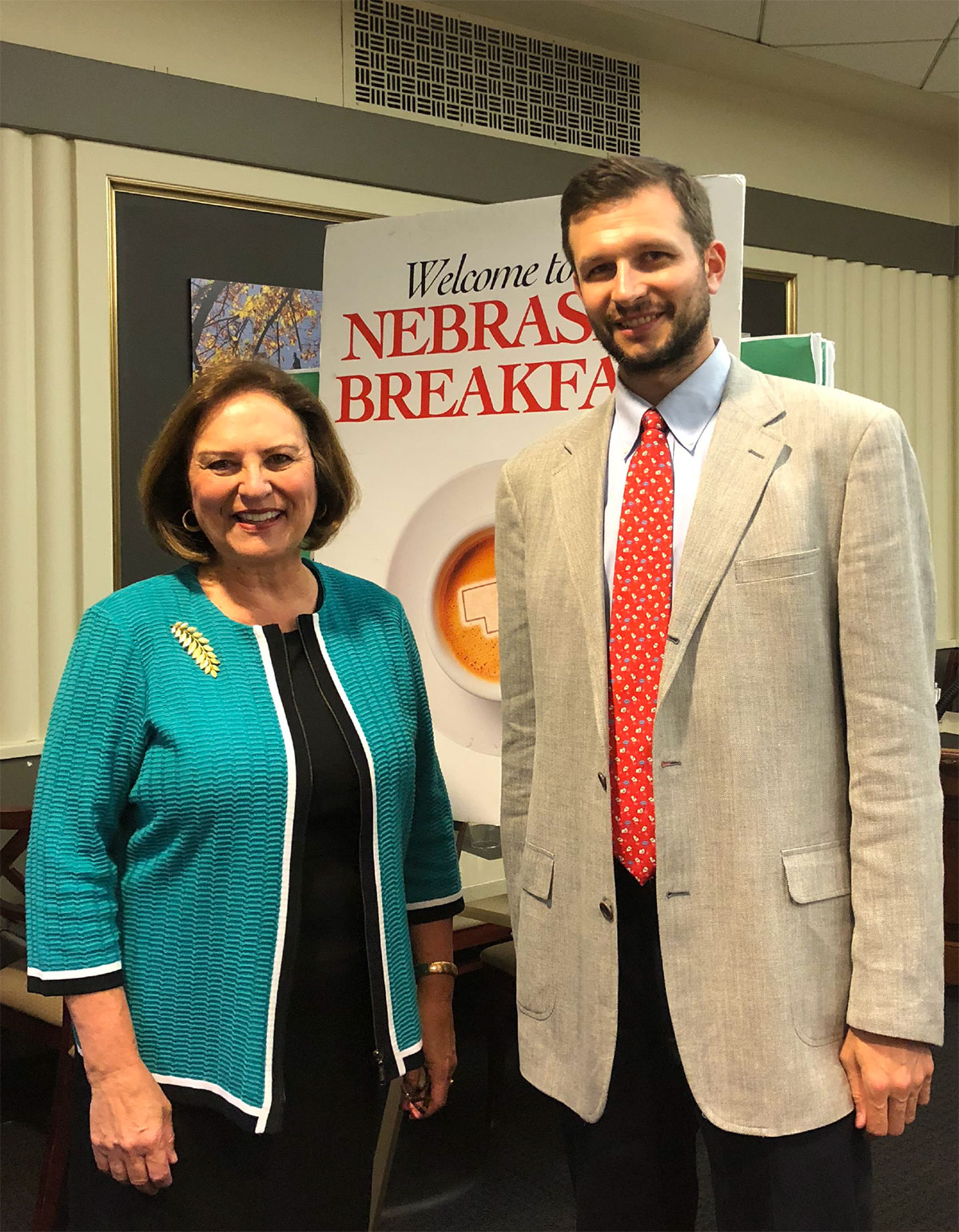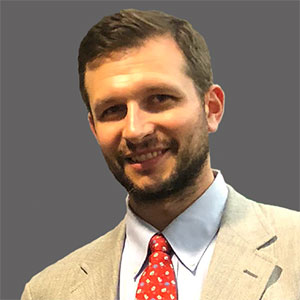Feature | Alliance For Specialty Medicine

Senator Debra Fischer (R-NE) with Andrew M. Goldsweig, MD, FACC, on Capitol Hill as part of the Alliance of Specialty Medicine Capitol Hill Fly-In. READ MORE.
The ACC and other specialty medicine organizations like the Society for Cardiovascular Angiography and Interventions, Heart Rhythm Society, and Heart Failure Society of America are important advocates for their members and the patients they serve.
Voices united around common objectives are stronger than a single voice alone.
I recently had the opportunity to hone my advocacy skills and represent our profession on Capitol Hill as part of the Alliance of Specialty Medicine Capitol Hill Fly-In. Over two days, activists from 18 medical specialties met with legislators, collectively and individually.
As a group, the Alliance hosted Rep. John Delaney (D-MD), the first Democrat to declare his candidacy for the presidency in 2020, Sen. David Perdue (R-GA), Rep. Richard Neal (D-MA), Sen. Rand Paul (R-KY), and Bill Cassidy (R-LA); Sens. Paul and Cassidy are members of the Senate Health, Education, Labor, and Pensions (HELP) Committee. We questioned these legislators about their visions for the health care system and then we shared ours.
Don’t forget to join the ACC in Washington, DC, at the 2018 Legislative Conference!
For the third year in a row, the Academic Section will host a pre-session on Sunday, Sept. 30, from 1 – 2:30 p.m. ET at the Hyatt Hotel Regency Forum room.
Register For Legislative Conference
Note: The ACC has a number of ways for members to get involved in Advocacy efforts. Its Annual Legislative Conference each September provides a great opportunity to learn more about the policy issues facing the cardiology profession and advocate directly with members of Congress.
Additionally, ACC Advocacy staff can assist with local visits and outreach. Click the button below to learn more about Advocacy at the ACC.
On behalf of the Alliance, we also championed several specific pieces of legislation in visits to the Hill, including: the bipartisan Resident Physician Shortage Reduction Act (S. 1301, H.R. 2267), which would increase CMS-funded Graduate Medical Education (GME) positions by 15,000 over five years, and the Restoring the Patient’s Voice Act (H.R. 2077) and Electronic Prior Authorization in Medicare Part D Act (S. 2908), which would both help establish a simple online process for prior authorization and appeals of prior authorization rejections.
The Alliance held special sessions to review these legislative priorities and train us to advocate for them effectively.
I was also privileged to meet with the legislators from my home state of Nebraska. During a 30-minute personal meeting with Sen. Debra Fischer (R-NE), I explained that my institution, the University of Nebraska Medical Center (UNMC), was accredited for many more cardiology fellows than we could fund, but since CMS funding for GME was frozen in 1996, we could not train enough cardiologists to meet the state’s needs.
I received very positive responses from staff working for Sen. Ben Sasse (R-NE) and Rep. Don Bacon (R-NE-02) after telling stories of patients who were denied care for months as they fought their way through the prior authorization process. Ultimately, all three legislators agreed to consider co-sponsoring the Resident Physician Shortage Reduction Act. I also invited the legislators to visit UNMC and have kept in touch with their staff to work on scheduling these visits.
Before catching my flight back to Omaha, I had the pleasure of attending the Nebraska Breakfast. This breakfast, a tradition started by Sen. Hugh Butler in 1943, brings together all Nebraskans visiting Washington to meet with the entire Nebraska congressional delegation every Wednesday morning while Congress is in session.
At the breakfast, I had the opportunity to meet with Nebraska’s two senators and three representatives, all of whom were very excited to support the interests of specialty physicians, understanding that these interests align with the health and safety of their constituents.
Attending the Alliance of Specialty Medicine Capitol Hill Fly-In was a terrific experience: I developed my skills as an advocate while meeting with senior policymakers to advocate on behalf of cardiologists and other specialty physicians. I look forward to increasing my involvement in such efforts in the future and highly recommend my colleagues to do the same.

This article was authored by Andrew M. Goldsweig, MD, FACC, assistant professor of structural heart disease and interventional cardiology at the University of Nebraska Medical Center in Omaha, NE.

